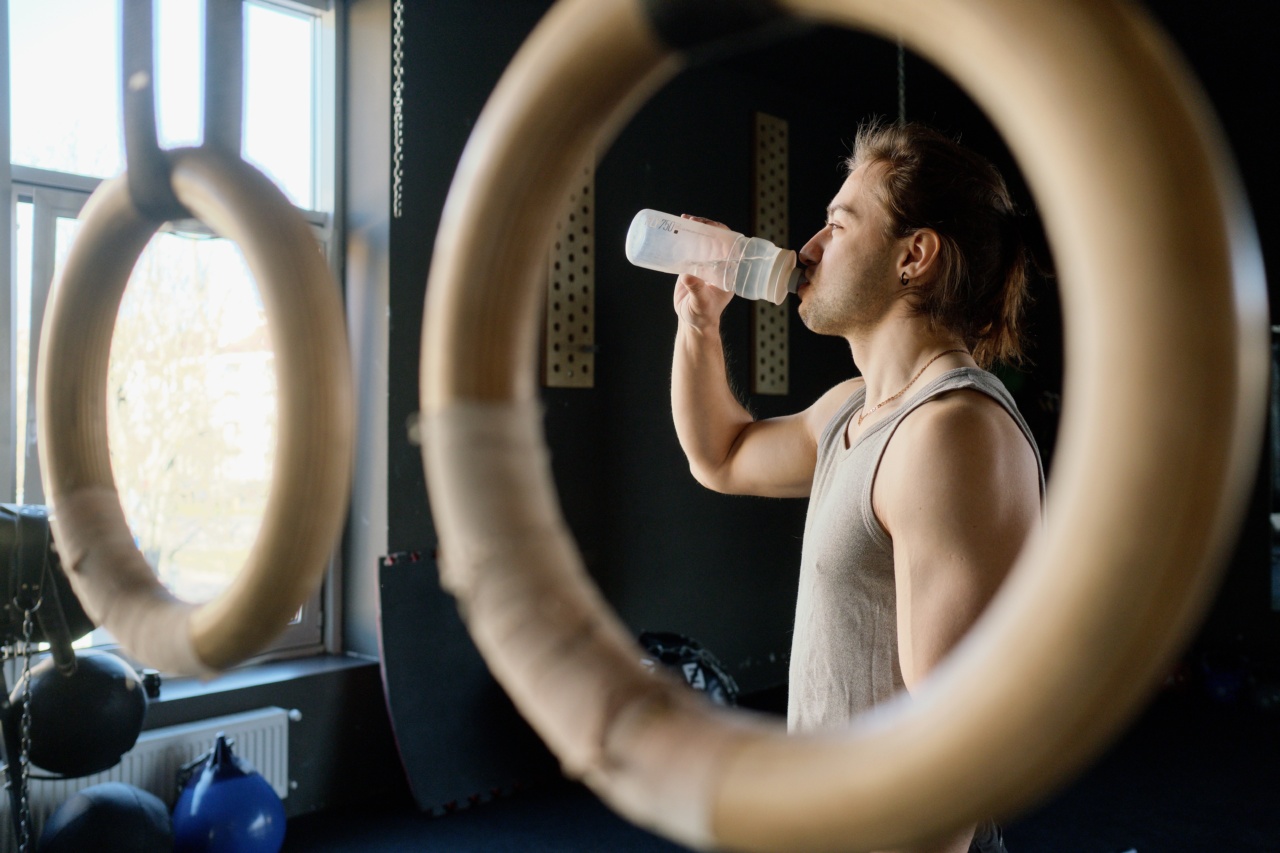Gymnastics is a physically demanding sport that requires strength, flexibility, balance, and endurance. Whether you are a recreational gymnast or a competitive athlete, proper hydration is essential for optimal performance and overall well-being.
In this article, we will explore the importance of staying hydrated during gymnastics training and discuss the impact of dehydration on performance and health.
The Effects of Dehydration
Dehydration occurs when the body loses more fluids than it takes in. This can happen due to sweating during intense physical activity like gymnastics.
When you are dehydrated, it not only affects your physical performance but can also impact your mental focus and concentration.
Here are some of the common effects of dehydration:.
- Decreased energy levels: Dehydration leads to a decrease in energy levels, making it difficult to perform at your best during gymnastics training.
- Decreased strength and endurance: Proper hydration is essential for maintaining muscle strength and endurance. Dehydration can cause muscle cramps, weakness, and fatigue.
- Impaired cognitive function: Dehydration can impair cognitive function, affecting your ability to focus, make quick decisions, and react swiftly during gymnastics routines.
- Increased risk of injuries: Dehydration can lead to a decrease in coordination and balance, increasing the risk of falls and injuries during training.
- Delayed recovery: Proper hydration is crucial for the body’s recovery process. Dehydrated muscles take longer to repair and may predispose you to muscle soreness and delayed recovery.
- Decreased flexibility: Dehydration can also impact your joint mobility and flexibility, which are essential for executing gymnastics movements effectively.
Hydration Guidelines for Gymnasts
To maintain optimal hydration during gymnastics training, it is important to follow some practical guidelines:.
- Drink water before, during, and after training: Start your training well-hydrated by consuming water before your gymnastics session. During training, drink water at regular intervals to replenish lost fluids. After training, continue drinking water to rehydrate your body.
- Monitor urine color: The color of your urine is an indicator of your hydration status. Pale yellow to clear urine suggests proper hydration, while dark yellow or amber-colored urine indicates dehydration.
- Stay ahead of thirst: Thirst is not always an accurate indicator of dehydration. By the time you feel thirsty, your body is already partially dehydrated. It is essential to drink water regularly, even if you don’t feel thirsty.
- Avoid sugary and caffeinated drinks: While it may be tempting to reach for sugary sports drinks or caffeinated beverages, these can actually contribute to dehydration. Stick to water as your primary source of hydration during training.
- Consider electrolyte replenishment: During intense or prolonged workouts, you may need to replenish electrolytes lost through sweat. Electrolytes play a crucial role in maintaining proper muscle function, and options like electrolyte-enhanced water or sports drinks can help.
Signs of Proper Hydration
Proper hydration plays a vital role in optimizing gymnastics performance. Recognizing signs of adequate hydration can help you ensure that your body is properly fueled for training. Here are some signs of proper hydration:.
- Maintaining clear urine throughout the day
- Feeling energized and alert during training
- Regular sweating during exercise
- No muscle cramps or weakness
- Normal heart rate and blood pressure
- No dizziness or lightheadedness
Conclusion
Staying hydrated is crucial for gymnasts to maintain peak performance, prevent injuries, and support overall health. Dehydration can have detrimental effects on energy levels, strength, endurance, cognitive function, flexibility, and recovery.
By following proper hydration guidelines and recognizing signs of adequate hydration, gymnasts can ensure that they are providing their bodies with the necessary fluids for optimal training and performance.






























